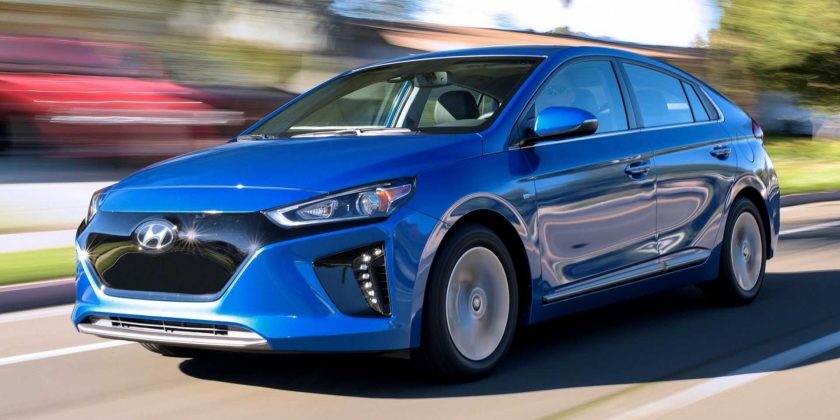For many Toyota owners, the words “unintended acceleration” bring back unpleasant memories.
However, the phenomenon they describe hasn’t been exclusive to the Japanese automaker; the latest company to face this issue is Hyundai, which is recalling some 2,679 Ioniq Electric hatchbacks in the United States.
First brought to the attention of the National Highway Traffic Safety Administration on December 7, 2021, the recall targets certain 2017–2019 Hyundai Ioniq Electric vehicles built on January 21, 2016 through June 24, 2019 by Hyundai Motor Company in Korea for sale in the United States.
In these affected vehicles, “unexpected acceleration following gas pedal release can increase the risk of a crash.” Here’s what the NHTSA recall notice says about the potential cause of unintended acceleration.
“An unstable electrical ground may cause the vehicle to enter a fail-safe mode with reduced acceleration and power. In certain conditions while in fail-safe mode, the vehicle may accelerate after the gas pedal is released.”
More specifically, Hyundai says that electrical noise is generated due to deterioration of the electrical ground which can create a communication error with the vehicle’s Controller Area Network (CAN) bus.
Needless to say, unexpected acceleration following gas pedal release can increase the risk of a crash. As a remedy, Hyundai dealers will update the EPCU (Electric Power Control Unit) software and repair the ground wiring, free of charge.
It’s worth noting that the braking and steering systems are fully functional during the “fail-safe” mode. Owners are warned of this issue if the EV “Ready” lamp flashes as the vehicle enters “fail-safe” mode. Hyundai adds it is not aware of any crashes, fires, or injuries related to the defect condition.
The first time the automaker became aware of this issue was in June 2021 via a Korean media report regarding an incident alleging unintended acceleration on an Ioniq Electric vehicle in the Korean domestic market.
The automaker will start mailing notification letters to affected owners in the United States on February 4, 2022.
Source: Read Full Article








